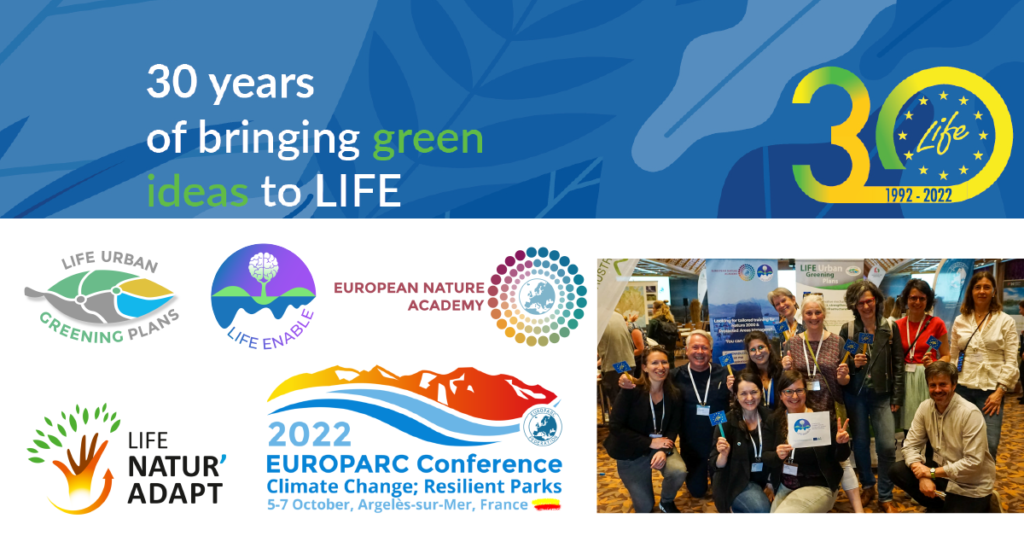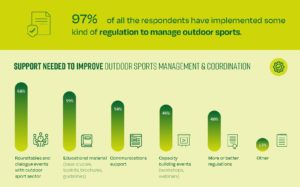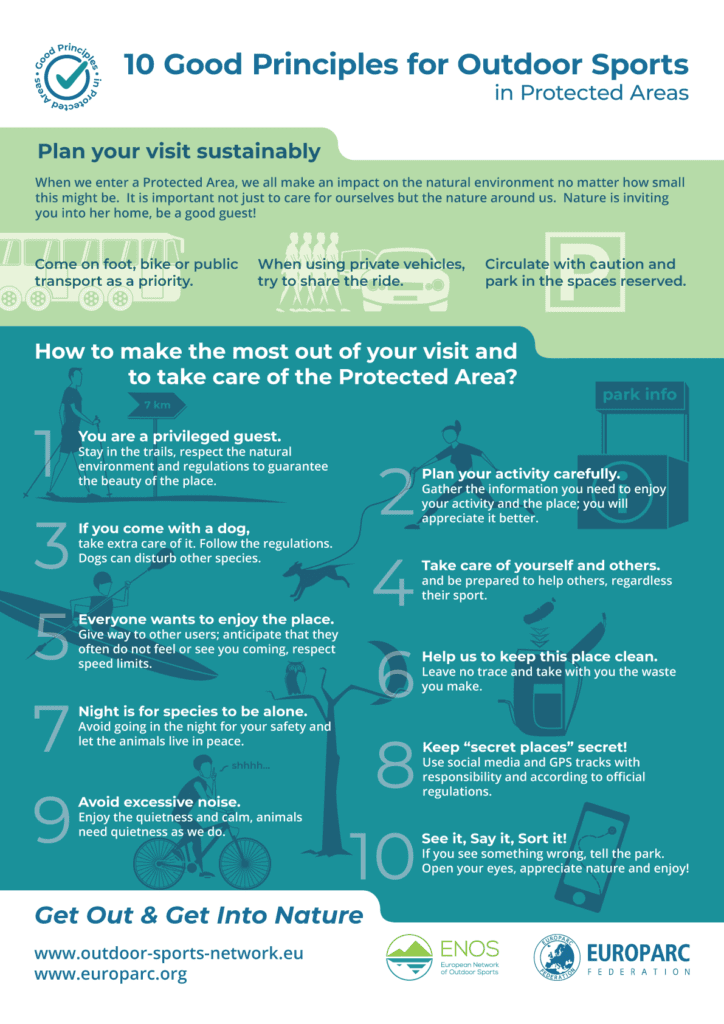LIFE ENABLE joining the celebration of 30 Years of LIFE projects in Austria
On May 24-25, 2022, the event “Die Enns blüht auf – 30 Jahre LIFE-Projekte in Österreich” (“Enns is blossoming – 30 years of LIFE projects in Austria”) took place in Stainach-Pürgg and Irdning-Donnersbachtal – Styria, Austria.
At the invitation of the Federal Ministry of Agriculture, Regions and Tourism, the HBLFA Raumberg-Gumpenstein, the Province of Styria and the Federal Ministry for Climate Protection, a two-day symposium was held in the Enns Valley (Styria, Austria). At the symposium, about 50 participants looked back on implemented projects and brought current projects and perspectives to the stage. An excursion to LIFE projects in the region indicated the success of the programme.
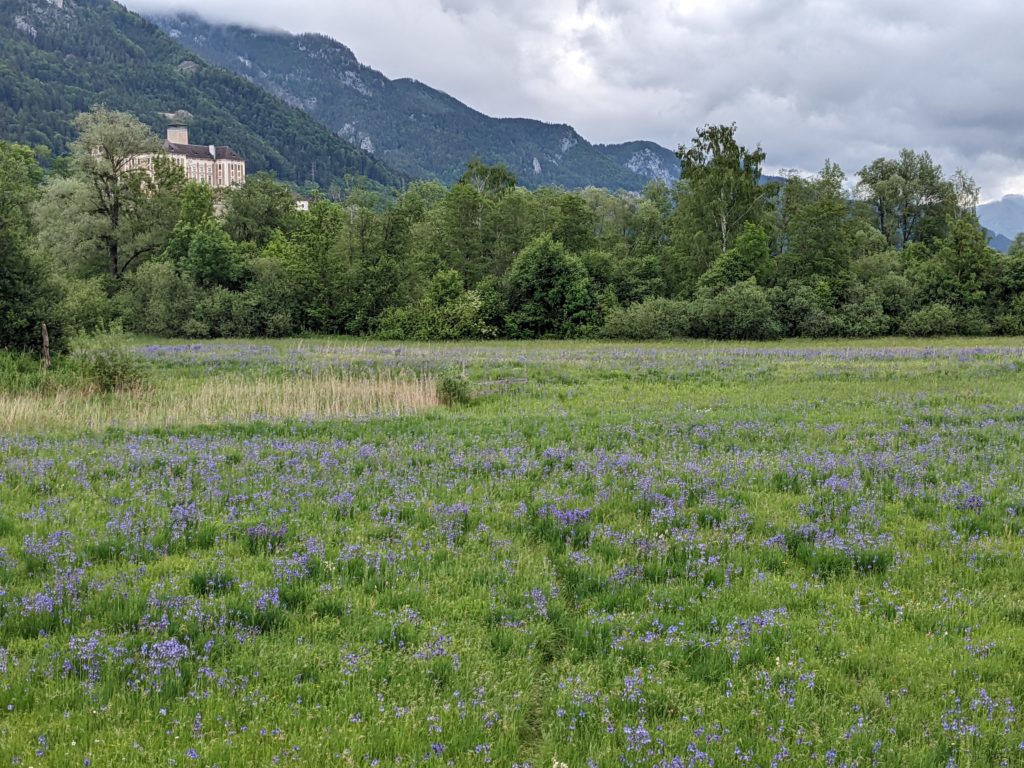
Excursion to an implementation measure “Iris-grasslands in Trautenfels”
LIFE ENABLE joining the celebration
Our project, LIFE ENABLE, was presented in several one-on-one meetings with the participants networking on this topic. Officials from the Province of Styria – Natura 2000 managers, the Styrian Society for Nature Conservation, officials from the Federal Ministry of Agriculture, Regions and Tourism, as well as the Federal Ministry for Climate Protection and colleagues from other environmental offices were introduced to the contents and goals of the project. The Natura2000 Protected Area managers from the Federal State of Styria were particularly interested in the project, as they have noticed a lack of specialized further education programs.
About the LIFE ENABLE project
LIFE Preparatory project LIFE ENABLE is designed to build practical nature management capacity among Natura 2000 and Protected Area managers. It aims to equip individuals and their organisations with the competencies they require to meet the challenges and opportunities of nature management in the coming decade.
It will develop a European training system called European Nature Academy as the means to develop further training projects and capacity-building programmes on a Pan-European scale. The goal is to deliver widely accessible and tailor-made learning experiences for Natura 2000 managers.
Click here to learn more about this exciting project.
LIFE is 30
The LIFE programme began in 1992 and so far has co-financed more than 5 500 projects in the field of environmental protection. This, and many other celebration events, have helped shine a light on and celebrate all green ideas that have been brought to life thanks to the LIFE Programme.
If you would like to learn more about the current LIFE projects the EUROPARC Federation is involved in – click here!
SEE project: Promoting responsible behaviour in Protected Areas at ESPARC 2022
From May 18 to 22, 2022, the XXI Congress of the members of EUROPARC Spain, gathered 150 participants in the Sierra de las Nieves National Park and Biosphere Reserve, Andalusia, under the theme “ESPARC 2022: towards living Protected Areas”.
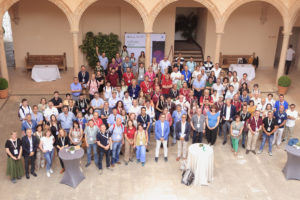
ESPARC Conference 2022 in Ronda, Spain
This was a great opportunity to share the information as well as the insights from the report produced by the Sustainability and Environmental Education in Outdoor Sports – ERASMUS+ project with the Congress participants.
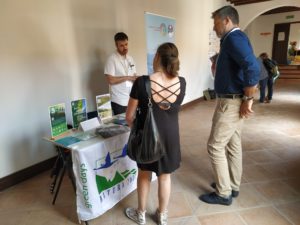
SEE project report
The first report within the SEE Project, “Perceived Issues from Outdoor Sports in Protected Areas” highlighted the issues that can be created by Outdoor Sports in the natural environment and particularly in Protected Areas at the local level.
KEY FINDINGS: Perceptions about Outdoor Sports by Protected Areas Managers
Some of the main insights provided by this BeActive… BeOutdoors… BeResponsible… report include:
- Most Protected Areas selected hiking (88.3%), mountain biking (57.5%), cycling (53.2%), running/orienteering (50%) and horse riding (39,2%) as the top 5 most practised Outdoor Yports.
- The most consistent issues throughout the majority of habitats were perceived to be linked to hiking and were namely issues with unleashed dogs, and in mountain biking, where conflicts with other users and practice in restricted areas were usually perceived as the most prominent issues.
- 70% of the respondents indicated that they monitor or estimate visitors numbers and 55% follow a visitor management plan but only 9% held the European Charter for Sustainable Tourism (ECST).
- 97% of all the respondents have implemented some kind of regulation to manage outdoor sports.
- Overall, 66% of respondents stated that outdoor sports in their Protected Area are linked to better awareness of nature and environmental issues, and 65% believe that their Protected Area is more valued by outdoor sports practitioners.
The survey was filled out by 94 Protected Areas from 24 countries. You can read a summary, the full report or a summary per outdoor sport category here:
In addition, on the official SEE Project website, you will also be able to find a second report focusing on broader sustainability issues for Outdoor Sports.
10 Good Principles for Outdoor Sports in Protected Areas
When talking about sports activities in protected natural spaces, it is necessary to pay attention to the way these activities are carried out in order to lower the impact of Outdoor Sports on the environment. That is why we also used this opportunity to present, in ESPARC Marketplace exposition, the 10 Good Principles for Outdoor Sports in Protected Areas developed together with the European Network of Outdoor Sports (ENOS). They summarise the best practices that can help you plan your visit to the Protected Area safely and respectfully to ensure your actions leave no negative impact on the natural environment.
Check them out:
10 Good Principles are available in different formats and languages! Please click here to download them!
Endorse the 10 Good Principles
Now that you know how the principles work, the next step is to back them up. How? It’s very simple! Here are a few examples:
- Show the 10 Good Principles on your website. Visitors who prepare their trips will be better informed.
- Disseminate information on social media. Use your network to spread the word!
- Use your visitor centre to show and talk about the principles during the visits.
- If you organise or participate in an Outdoor Sports event, make sure participants know the principles before the activity starts.
- When working with young people, teach them and highlight the importance of respecting these principles. Five minutes of teaching can develop into many years of good practice.
- Talk and spread the word to anyone interested, in any way. All diffusion is important!
LIFE ENABLE Project at ESPARC Conference in Ronda, Spain
ESPARC Conference 2022 in Ronda, Spain
From May 18 to 22, 2022, the XXI Congress of the members of EUROPARC Spain, was held in the Sierra de las Nieves National Park and Biosphere Reserve, Andalusia, under the theme “ESPARC 2022: towards living Protected Areas”.
Organised jointly with the Regional Government of Andalusia and Fundación Fernando González Bernáldez – EUROPARC Spain, the official venue was set in the Congress Palace of the city of Ronda, with workshop venues scattered in the surrounding villages of Yunquera, Istán, Alozaina, Parauta and Tolox.
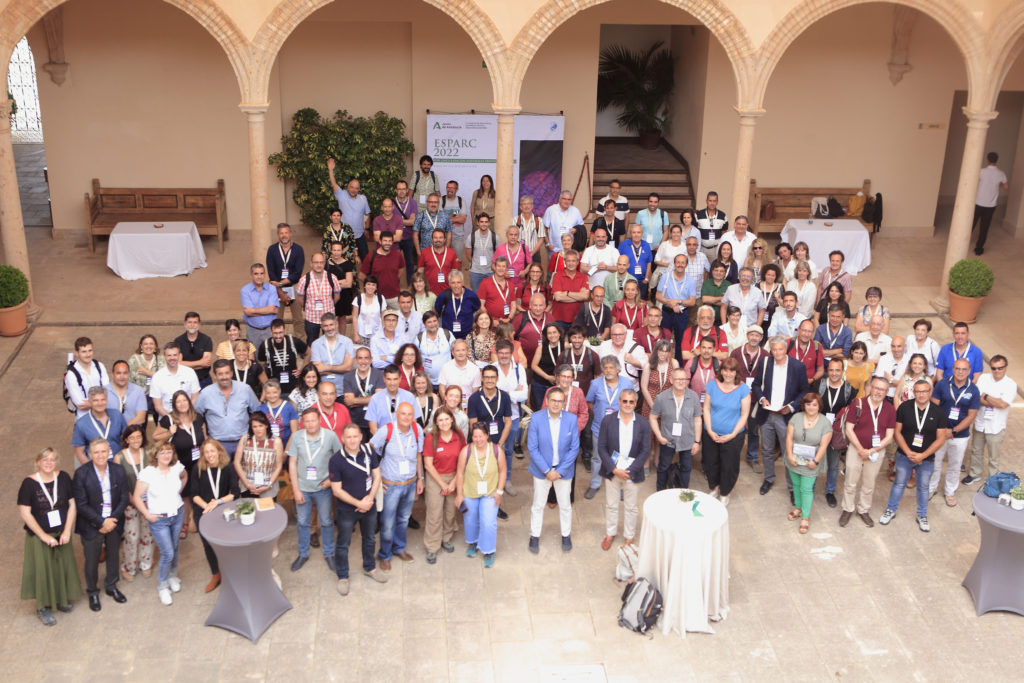
ESPARC Conference 2022 in Ronda, Spain
Similarly to other EUROPARC conferences, the congress included a dedicated day to explore, through different field trips, the natural and cultural heritage of the Sierra de las Nieves, a National Park designated barely one year ago and the 16th Protected Area within this category in Spain.
The event brought together 150 participants, technicians, and professionals from Protected Areas all over the country, with a high representation of participants from the host region. Along with them, several representatives for the planning and management of Natura 2000 sites, conservation organizations, municipal environmental technicians, environmental and nature tourism companies and researchers were present at the congress.
Main topics and objectives
The main objective of this biannual congress is to exchange knowledge on key conservation issues. This year, the workshops focused on discussing new scenarios for biodiversity conservation in relation to rural abandonment, management and prevention of fires, adaptation and mitigation measures to climate change, tools for visitor management and the necessary alliances to involve the local population in the benefits of Protected Areas.
Together with the workshop and plenary sessions, the congress included the exposition by interested participants including more than 50 experiences and projects developed in Protected Areas and initiatives presented during a market like session.
In this last session, the EUROPARC Federation representative hosted a dedicated stand for the LIFE ENABLE project led by EUROPARC Federation together with EUROPARC Spain and 6 other partners that seeks to provide blended learning opportunities and improve the capacity of Protected Area managers in Europe. The project was well-received by potential course participants, which were informed about the project’s key dates and goals and added to the project dissemination list to insure they don’t miss any important updates in the future.
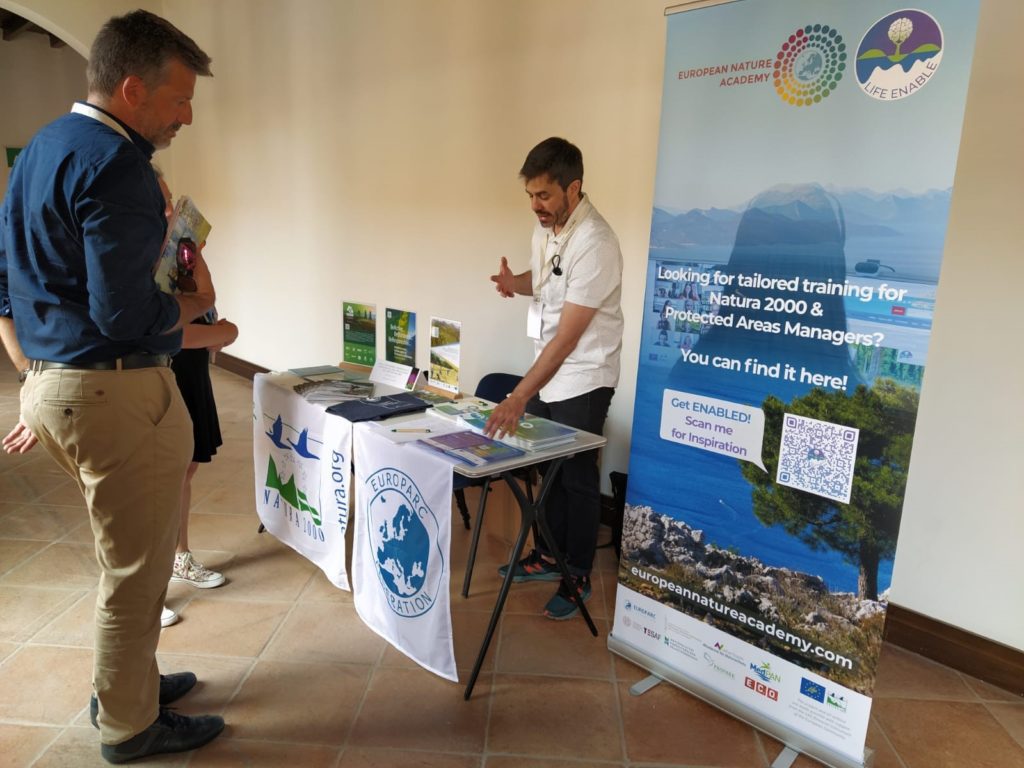
LIFE ENABLE at ESPARC 2022
